Asus Strix 15 GL502VS Gaming Laptop Review
Why you can trust Tom's Hardware
Price Analysis & Conclusion
We haven't reviewed many laptops with GTX 1070 GPUs, let alone those paired with Kaby Lake processors, so we were excited when the Asus Strix GL502VS-DS71 landed in our offices. Couple this with the fact that the previously tested Asus Strix GL502VM-DB71 performed so well, we had high expectations for this updated system. And almost across the board, the shiny new Strix lives up to those expectations.
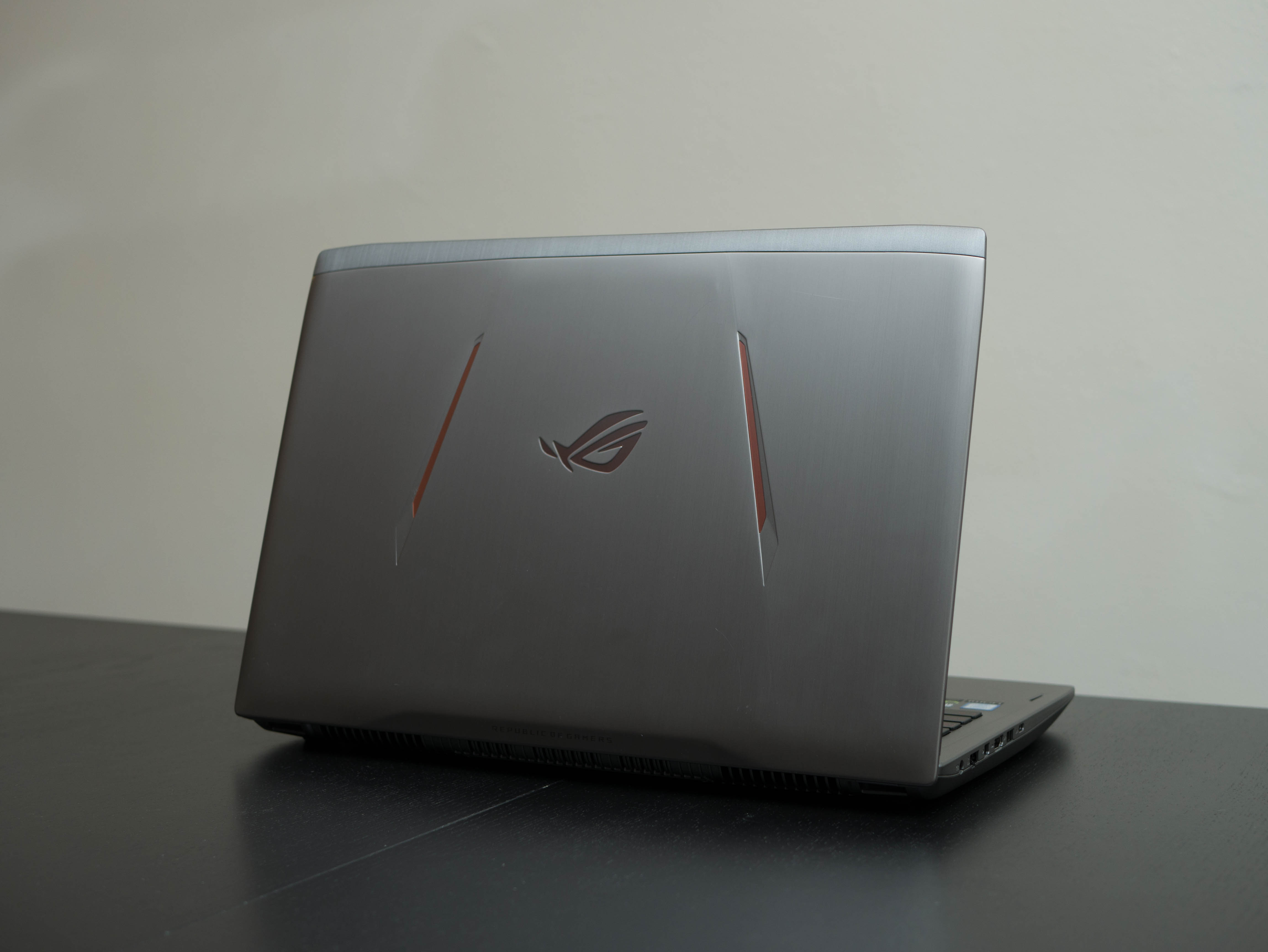
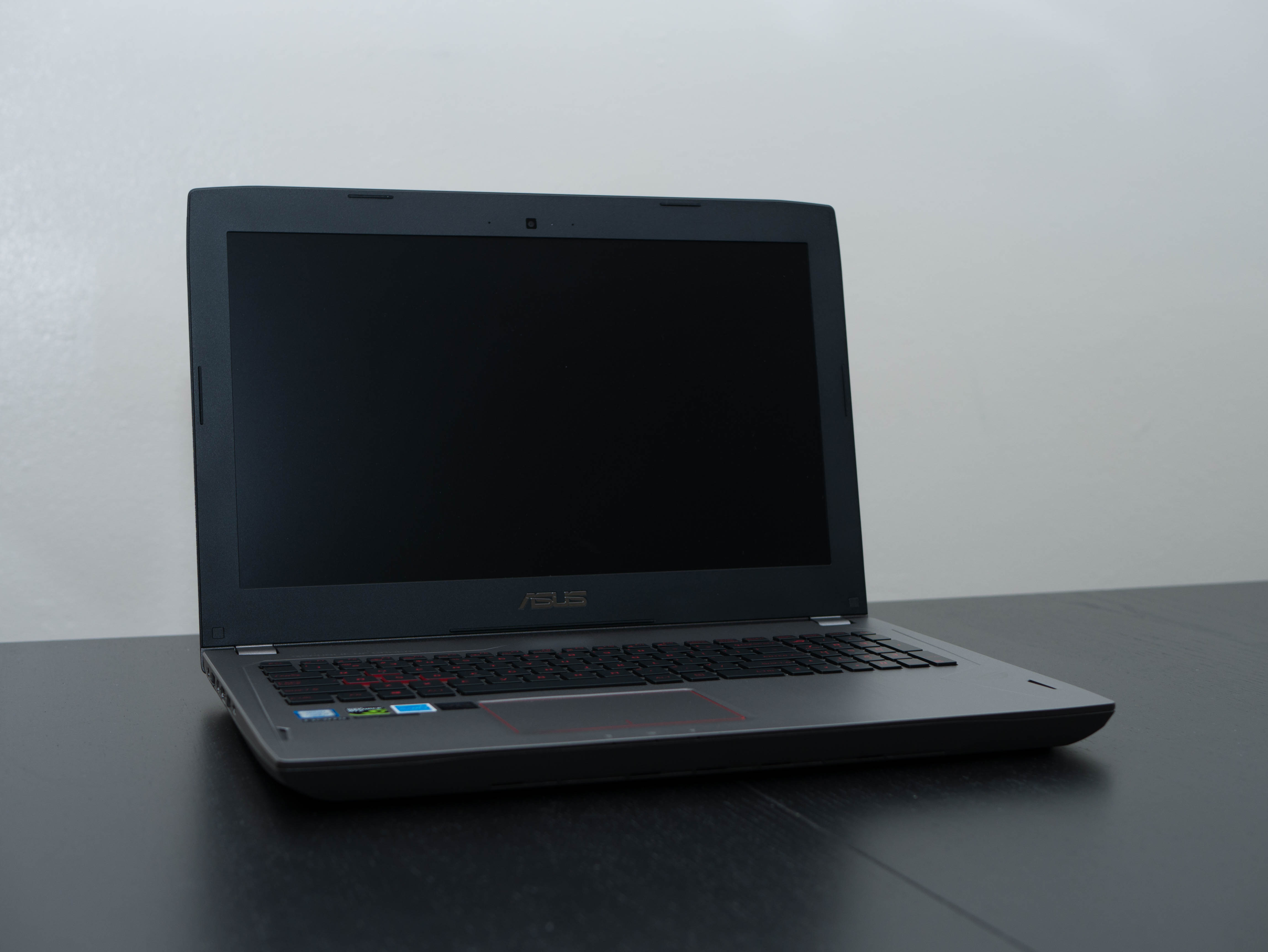
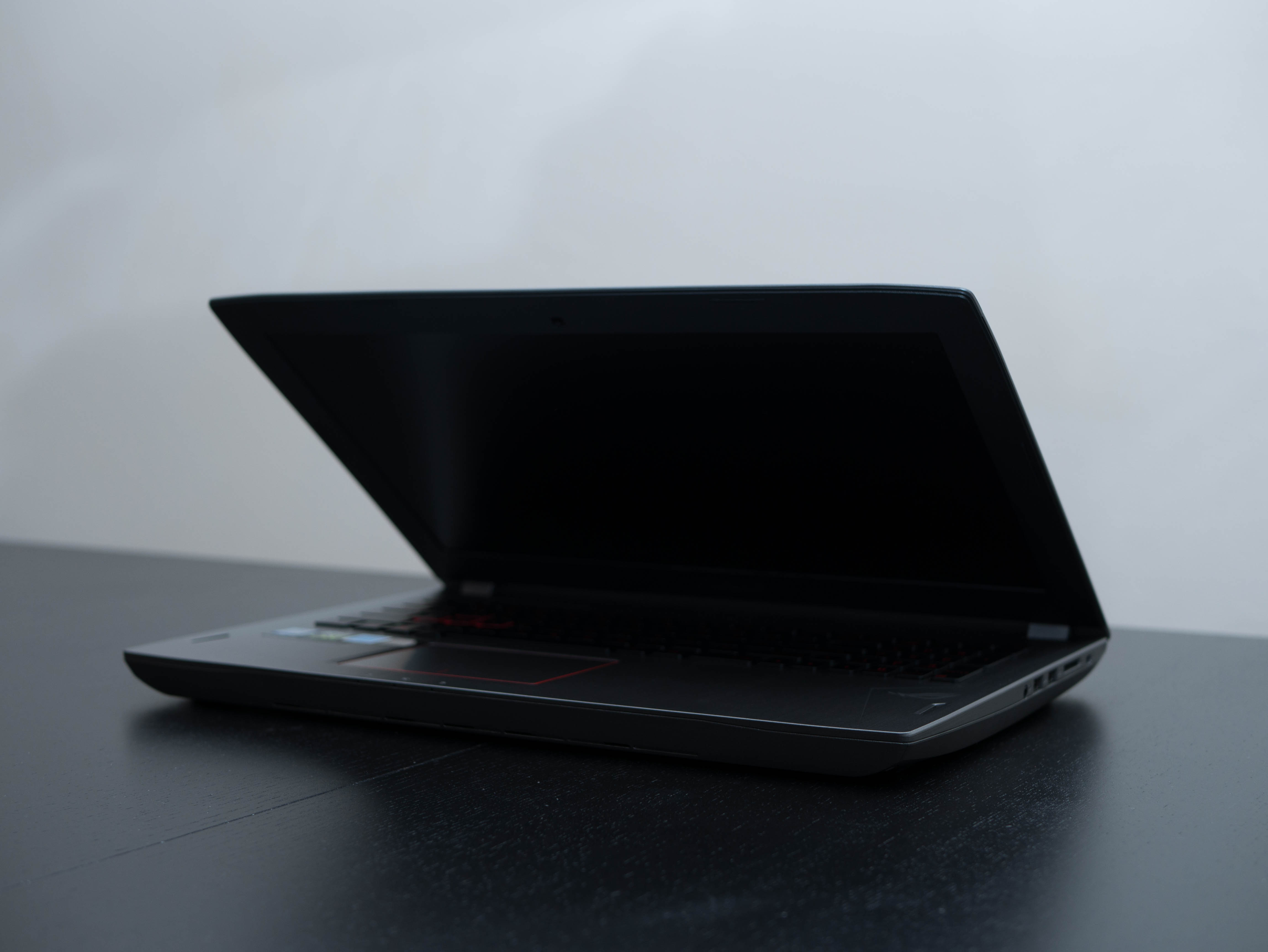
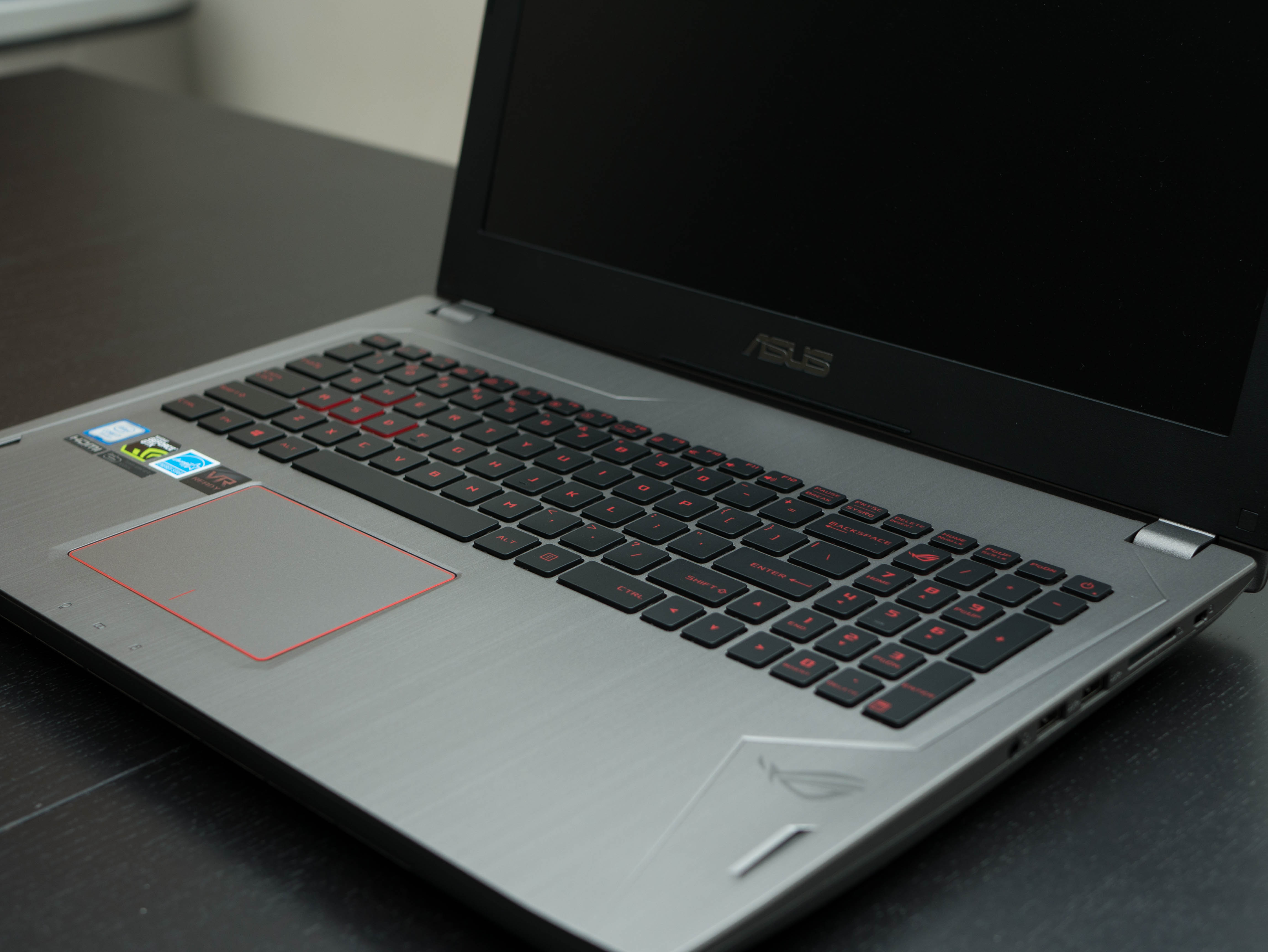
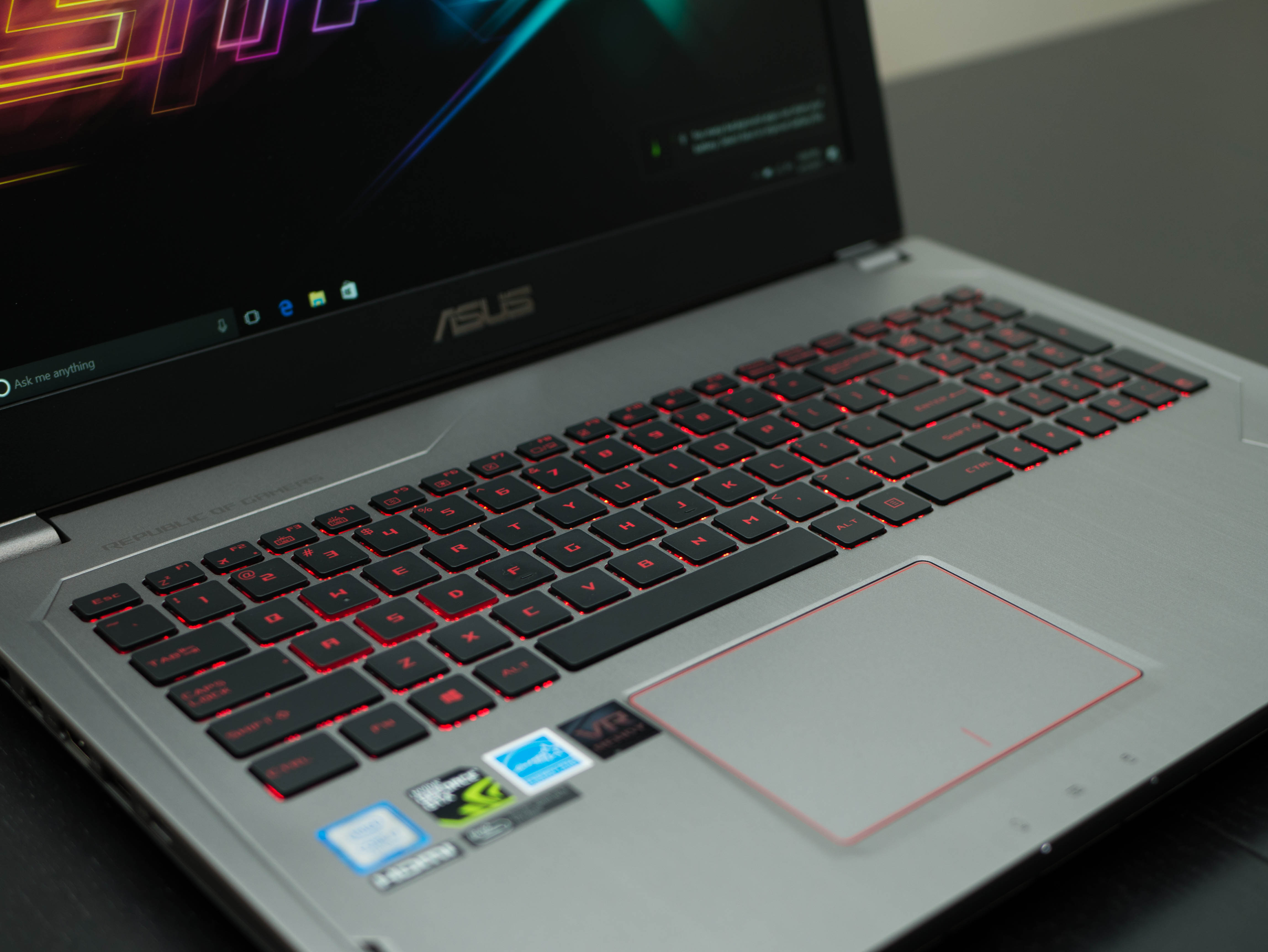
Performance didn't suddenly skyrocket with the newer CPU, but we did see some noticeable boosts against previous-gen CPU laptops like the Acer Predator 17. For example, Cinebench's CPU-focused single core and multi-core tests benefit from the updated architecture, and the Asus Strix outdoes both Acer's i7-6700HQ as well as EVGA SC17's i7-6820HK. We see similar results during PCMark's Adobe Creative and Microsoft Office workloads, with the i7-7700HQ-equipped systems taking the lead against the Skylake laptops. However, Asus cut some corners on the storage solution; the SK Hynix SC308 offers mediocre speeds in comparison to the competition, and at half the storage capacity.
In gaming performance, the Asus Strix performs very well, but it also doesn't do much better than the Predator or SC17. For the most part, the three laptops are within a handful of frames, but there are a few games where the Kaby Lake processor makes all the difference, although not always. In Grand Theft Auto V, the Strix consistently outputs more than playable frame rates, with the exception being the Vinewood Sign scene; but overall, the overclockable i7-6820HK benefits the EVGA's performance more than the Asus i7-7700HQ. Hitman tells us a similar story to GTAV, but with the performance differences between CPUs being much more pronounced. And Kaby Lake finally benefits the Asus in The Division, but only by a mere frame.
Thermal dissipation is a strange story; the Asus produced the most heat out of the laptops in our comparison, at least according to AIDA 64's GPU diode log. The Predator was much thicker, which means it has space for a more robust cooling solution, and that's not even including its hot-swappable fan. The SC17 also exhibits impressive cooling. The NP8156 has slightly better GPU cooling, but we found its CPU dangerously overheating. This leaves us with the Strix 15 at a max temperature of 76°C, which for all intents and purposes isn't terribly bad for a laptop. It wasn't as cool as the GL502VM-DB71.
Battery life seems to be one of the main weaknesses in gaming laptops; if you're traveling for a few hours, and you need to get in a good match or quest, a decent battery can suffice. Unfortunately, the Strix delivers only slightly more than 1 hour and 30 minutes of game time. This isn't to say that its competition fares much better; they only eek out a few extra minutes. Your best bet for longevity in this price bracket is the SC17, and you won't find better battery life unless you take a massive hit in GPU performance.
The Strix's display is good for the most part. Asus employs FHD IPS displays with G-Sync on all of its Strix models, which is great for games during which the Strix cannot deliver 60+ FPS. The display has excellent contrast ratios. The gamma point is almost level across the board, which means few cases of over or under-saturation. The Asus also displays the lowest average color error out of the systems in our grouping, with a hardly noticeable DeltaE 2000 of 3.9049. And yet the RGB levels are imbalanced, with a major emphasis in blue levels. Also, the grayscale inaccuracies are abundant, although not the highest we've seen. The state of gaming laptop displays is not a very exciting one.
As with the GL502VM-DB71, the updated Strix also features superb build quality. The silver brushed metal lid gives the Strix a refreshing appearance among the swarm of black, gray, and red shades we're used to seeing in gaming laptops. The rest of the build is primarily plastic, and despite this, the GL502VS-DS71's doesn't feel any less robust. Everything from the keyboard, to the trackpad, to the bottom panel feels sturdy, and although it doesn't have the matte rubberized finish of the Predator or the luxurious CNC-cut anodized aluminum of the SC17, the Asus Strix is solid on its own.
Get Tom's Hardware's best news and in-depth reviews, straight to your inbox.
We feel that the Strix 15's best feature is its price. At $1,700, the Strix is the lowest-priced GTX 1070-based laptop we've tested so far. In synthetic and gaming benchmarks, it competes with the Predator 17 and the SC17, which, as of this writing, are $2,000 and $2,250 respectively. On the other hand, the Sager NP8156 is $100 cheaper, but has no HDD storage and is considerably less powerful because it uses a GTX 1060 GPU.
The biggest blight on the Strix 15 is its small storage capacity; all of the other systems in this grouping have at least a 256GB SSD, so Strix owners will need to make sure that only vital applications are installed on the primary drive. However, considering the price, this isn't a bad trade-off. The Asus Strix GL502VS-DS71 doesn't stand out just because of its build quality and performance, it does so because it offers both at a reasonable price.
MORE: Best Gaming Laptops
MORE: Gaming Laptop Previews
MORE: All Laptop Content
-
g-unit1111 Reply19721520 said:14 screws? Get yourself a Sager, 3-4 screws to remove the back panel.
That's about typical for that kind of laptop - my MSI has 13 screws to remove the back panel.
I like the Asus laptops and I would have bought one, but I couldn't get past the ugly bright red WASD keys on many of their laptops in the Strix / ROG line. -
Jordan_118 I have the last years model, looks basically the same on the outside, but I love it. Great laptop.Reply -
SylentVyper Reply19721520 said:14 screws? Get yourself a Sager, 3-4 screws to remove the back panel.
I had a Sager NP8651 with a 970m and it had about that many screws.
Considering all I've done is add a stick of RAM and an SSD, I certainly wouldn't pass on a laptop because it had more screws anyway lol -
Xajel Still no XPS alternative in the ROG family. 4C/8T + 1050Ti or 1060 + M.2 PCIe + 16GB onboard + Single SO-DIMM slot + 15.4" 1080p with very thin bezels.Reply -
cats_Paw With vega and volta around the corner getting a laptop with a 1070 seems like a bad choice (especially if you consider the price is a bit high).Reply -
msmith7 Is there a strobed backlight? Is this capable of ultra low motion blur (ULMB), lightboost, or some other tech from reducing motion blur?Reply